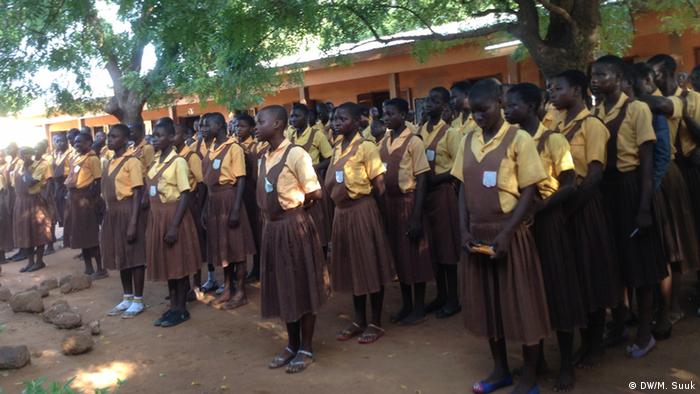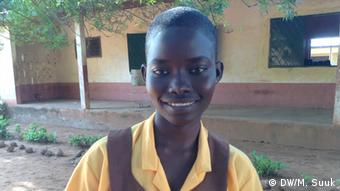Learning to speak up in rural Ghana
- Details
- Category: Youth News
- Created on Friday, 05 December 2014 00:00
- Hits: 3569
 Learning to speak up in rural Ghana
Learning to speak up in rural Ghana
Girls growing up in rural Ghana often lack the self-confidence of their peers in urban areas, which can put them at a disadvantage in later life. Gender activists are trying to help.
As dozens of schoolchildren at the Kumbungu District Assembly Junior High School in Ghana's Northern Region gather for morning assembly, 14-year-old Kadijah Alhassan stands out in front ready to address the crowd.
Morning assembly is held in all Ghanaian lower level schools. Students pledge out loud to be obedient and patriotic.
"I promise on my honor to be faithful and loyal to Ghana, my motherland," they declare in unison.
As the moment for her to speak to the school approaches, Kadijah knows she has the necessary self-confidence.
She used to be rather more diffident, until she attended a mentorship club.
“It helped me to speak in public because when I was not part of this club, I was not able to speak in public. And in class I didn't know how to answer questions but now, I can do that,” she told DW.
 One generation helping another
One generation helping another
The mentorship club was the brainchild of Hikmat Baba Dua, 24, a graduate from the Kwame Nkrumah University of Science and Technology. She had noticed that girls from rural backgrounds in Ghana tend to lack in self-esteem, be timid and shy and have difficulty with public speaking. As well as helping the girls develop interpersonal skills, the club also offers them assistance in choosing a career.
Dua runs an organization called the League of Young Female Leaders and says most girls need help. "This help can only come from a generational mentorship where we have graduates of tertiary institutions linking them up with our sisters in junior schools," she said.
 Kadijah wants to work in journalism. She says this because "in Ghana there are more confusions about the political parties and I want to be part of those who are educating them.”
Kadijah wants to work in journalism. She says this because "in Ghana there are more confusions about the political parties and I want to be part of those who are educating them.”
Ghanaian gender activist Hafsatu Sumani believes rural women's low self-confidence is linked to cultural stereotypes.
“It is only in urban areas where you will find young girls talking in public or even in the midst of men discussing, but if you go to the villages, you will find meetings where you don't have young girls or even women participating. It is just because they feel that women do not have that knowledge to participate,” she told DW.
Sumani says a timid girl becomes a timid woman when she grows up, and this keeps many women from realizing their potential.
Date 17.11.2014
Author Maxwell Suuk / mc
Source: Deutsche Welle

